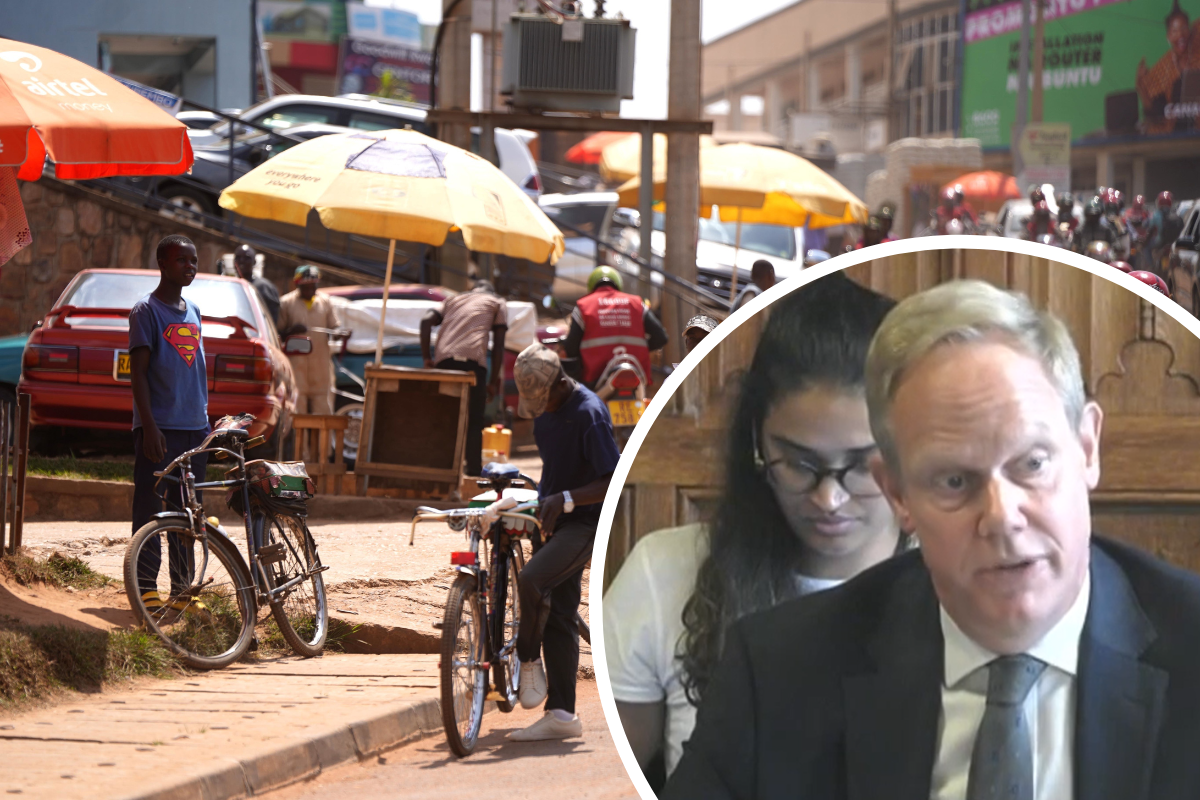
THE Government’s Rwanda policy risks encouraging refugees to take “more dangerous” journeys to get to the UK, a top Home Office mandarin has admitted.
Matthew Rycroft, the most senior civil servant in Priti Patel’s department, told parliament’s home affairs committee on Wednesday the policy – which human rights groups have branded “inhumane” – could result in desperate migrants taking riskier journeys to the UK.
Grilled by SNP home affairs spokesman Stuart McDonald, Rycroft (below) said “absolutely” the policy could see people travelling to the UK hidden in the back of lorries.
%image('13916786', type="article-full")
Some 39 Vietnamese migrants were found dead after suffocating in the back of a lorry having been smuggled over from Belgium.
McDonald asked: “Do you factor in the possibility that in actual fact behaviour changes, so more dangerous crossings are attempted or there’s a move back to clandestine arrivals in the back of lorries, for example?”
Rycroft responded: “Absolutely. Yes, I think it’s really important to see this in the round and thank you for the opportunity to agree with you on that. I do agree that we should be thinking about irregular migration in general and all of the different routes.
“And it would be a pyrrhic victory if this set of policies were successful in closing down the small boat route but created something even more dangerous. That would not be a victory at all, so we need to make sure we’re thinking about this in the round.”
But he added that he had seen no evidence to suggest migrants were taking “roundabout” routes to reach the UK.
%image('13891414', type="article-full", alt="The Tories' efforts to deport the first migrants to Rwanda last week when judges blocked a chartered flight from taking off ")
Since its conception, a key reason given by the Government for implementing the policy was to prevent the rising number of people attempting the perilous journey across the Channel, with opponents accused of “doing nothing” about the crisis.
But Rycroft was also unable during the evidence session to confirm if the policy had had a deterrent effect to those attempting to make the journey, with Labour MP Diane Abbott pointing out this year’s figures were higher than in 2021.
He claimed it was “too early to be definitive” about why numbers continued to rise despite the policy’s announcement in April.
%image('13916816', type="article-full", alt="Home Secretary Priti Patel has vowed to deport migrants soon, in spite of numerous legal obstacles ")
Rycroft also found himself in hot water in the committee meeting after he said there was “nothing that the Home Office loves better than a good crisis”.
Later, when asked what crises had ended well in the department, he clarified: “First of all, apologies if that was an overly flippant form of words. What I was getting at was that the culture in the Home Office, I think, does respond very well to a crisis.
“We’ve already just talked about Afghanistan and Ukraine. I think those are both crises the Home Office contribution to which has been something that I for one have been very proud of and I hope that everyone involved in it has been proud too.”
Challenged on whether the Afghan and Ukraine crises had ended well, he said: “They haven’t ended well for either Afghanistan or for Ukraine.
“But they are continuing to go well in terms of the Home Office contribution to resettling 13,000 Afghans, and so far 120,000-plus Ukrainians, so I think that is a positive contribution by the Home Office.”
According to figures from the Ministry of Defence, analysed by the PA news agency last week, 11,000 people had crossed the Channel on small boats, risking their lives, to reach Britain since the beginning of the year.
That number is almost double the figure for this time last year.
The department was dealt a critical blow last week after judges at the European Court of Human Rights blocked the first flight chartered to deport migrants.







